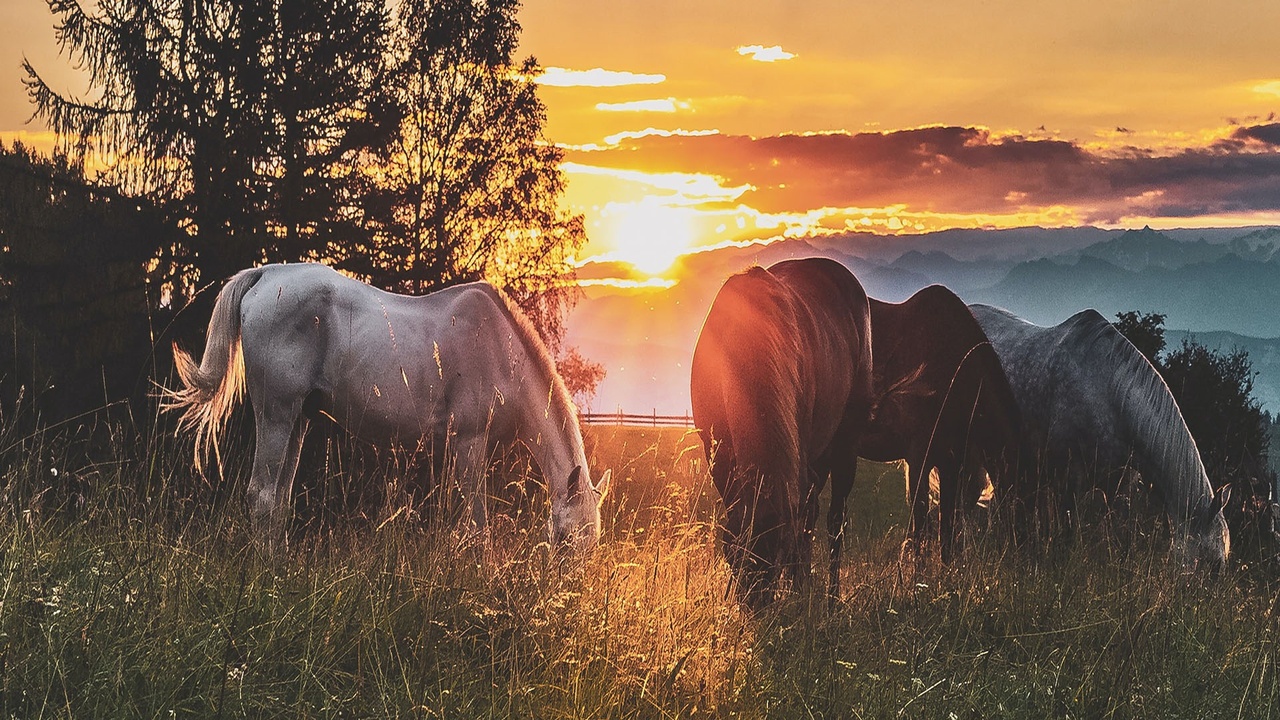Commusings: Maybe by Jeff Krasno
Nov 04, 2022
Or, listen on Spotify
Hello Commune Community,
Today, I share with you a Taoist lesson in the form of a (slightly annoying) parable. This fable was a favorite of Alan Watts, who delivered it with his inimitable panache.
When something seemingly “bad” or “good” happens, Schuyler and I have a shorthand response. We look at each other and mouth, “Chinese farmer.” My screed from this past summer documenting my lost luggage serves as a perfect example of how we can never really predict the terminus of causal chains of events.
Here at [email protected] and unattached on IG @jeffkrasno.
In love, include me,
Jeff
• • •
Maybe
There once was a Chinese farmer whose horse ran away.
All the townspeople gathered at his farm and lamented, “What a great misfortune. How unlucky.”
The stoic Chinese farmer said, “Maybe.”
The next day the horse returned with six stunning wild horses alongside. And, again, all of the townspeople gathered at the farm, but this time they rejoiced. “What great fortune!” they declared. “What a stroke of luck!”
Unmoved, the Chinese farmer said, “Maybe.”
The next morning, the Chinese farmer’s son took one of the wild horses out for a ride. The horse bucked, violently tossing the young man to the ground and breaking his ankle. All the townspeople again gathered at the farm to express their sympathy, “What an awful misfortune!” they cried out. “How unlucky.”
The Chinese farmer said, “Maybe.”
The following day, the army came to town to conscript all the young men for a bloody war. But because the farmer’s son had a broken ankle, they passed him over. And all of the townspeople again flocked to the farm. “What great fortune!” they proclaimed. “What a stroke of luck!”
The Chinese farmer said, “Maybe.”
As a product of direct experience, we all know that what appears to be rosy in the moment can, in the next moment, be quite dreadful. Anyone who has ever been drunk at a wedding might relate. The opposite is also true. You slam the steering wheel in frustration when slowed down by a traffic light only to watch the car that sped through the yellow light get into an accident.
The Taoist sage would counsel: Never assign advantage or disadvantage to any circumstance.
Many of the greatest opportunities for growth and expansion lie right on the other side of the valley we dub rock bottom. Personal development so often has its provenance in our most profound struggles and suffering.
There is great value in cultivating equanimity — but don’t conflate this equipoise with passivity. Given the bellicose state of the world, a more peaceable approach might better serve us. However, equanimity is not limp conciliation. It is the bringing forth of all your attention and energy to the present moment without attachment to result.
No matter if you are a student of Eastern religion, quantum physics or natural sciences, the same truth is revealed: life is process, not product.
Our singular focus on product – whether it be a gross domestic one or a simple domestic one (like dinner) – distracts us from the cooking of it. Our obsession with product keeps us chained to an imaginary future, shackled to the endless creation of anticipated memories. We think … “If only, and only if, [fill in the blank] happens, well, then, I’ll be happy.” But being truly content can only take place in the ever-present.
It’s as if we’re constantly holding our breath in worry. Of course, the most certain way to lose your breath is to cling to it. When you let it go, it comes back to you, like the ebb and flow of the tide.
Taoism is the art of letting go. And practicing this non-attachment will lead you to a happier life.
Maybe.
Leading teachers, life-changing courses...
Your path to a happier, healthier life
Get access to our library of over 100 courses on health and nutrition, spirituality, creativity, breathwork and meditation, relationships, personal growth, sustainability, social impact and leadership.
Stay connected with Commune
Receive our weekly Commusings newsletter + free course announcements!


